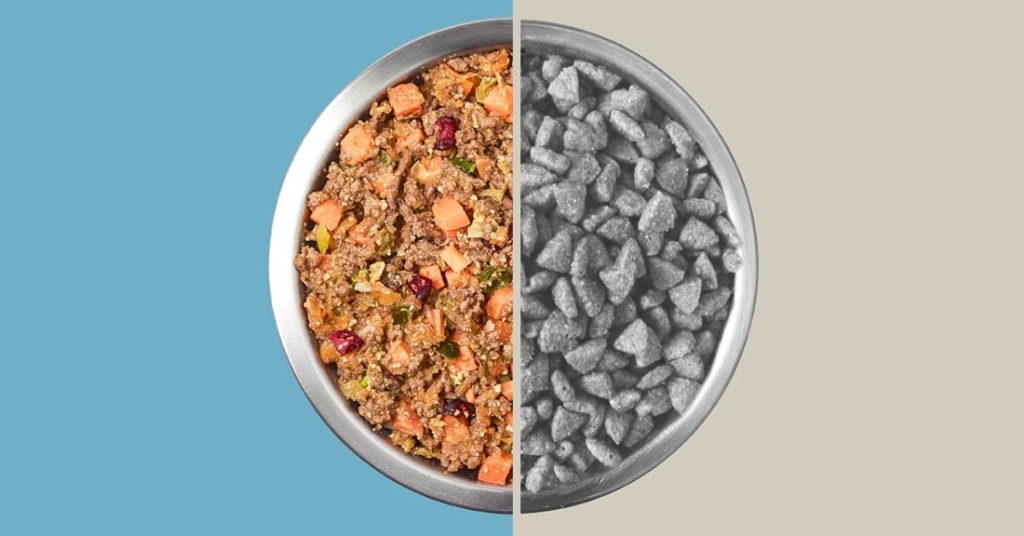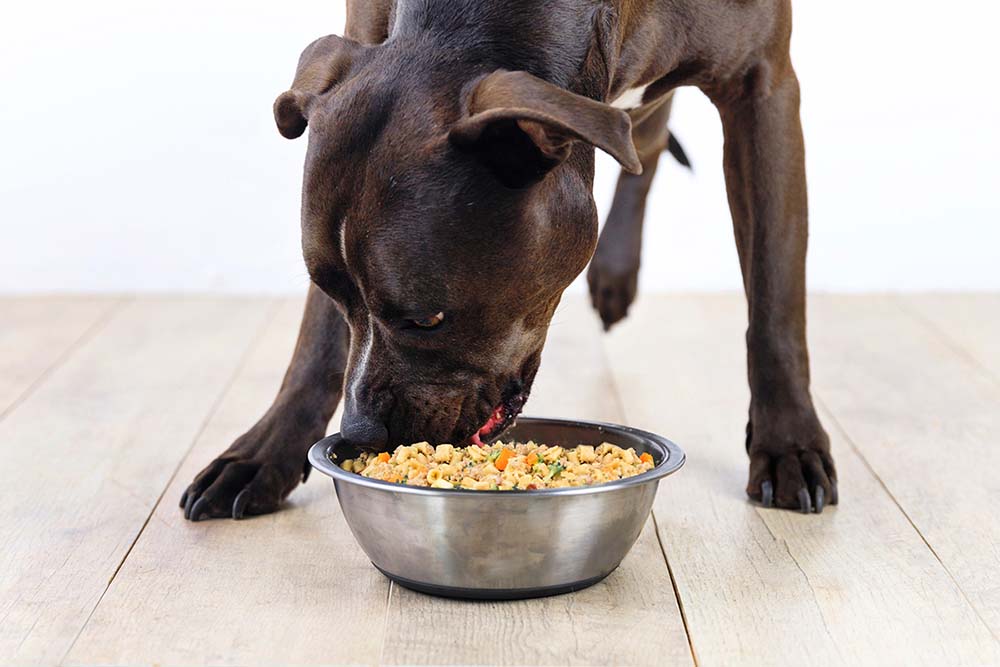As it is with humans, your dog’s digestive system is an important part of their overall health. As the National Institute of Health puts it, the digestive process is vital because your body needs nutrients from food and drink to work properly and stay healthy — the same applies to your pup!
Understanding how your dog’s digestive tract works, including how long it takes for a dog to digest food, will help you make more confident decisions about their health and diet.
What Does the Digestive System Do?
Other than helping your dog’s food go in one end and out the other, the digestive system breaks nutrients into parts the body can absorb and use for things like energy, growth, and cell repair.
Your dog’s digestive system includes:
- Esophagus
- Stomach
- Mouth
- Small Intestine
- Large Intestine
- Pancreas
- Liver
- Gall Bladder
- Rectum and anus
Each part plays a role in your dog’s digestive cycle. With the mouth, the dog’s teeth break down the food into smaller pieces. Saliva helps to moisten the food and start the digestive process by breaking down carbohydrates. The stomach churns the food and mixes it with gastric juices, which help to break down proteins. The stomach also produces acid, which kills harmful bacteria.
The small intestine is where most of the digestion and absorption of nutrients takes place. The food is broken down into even smaller pieces by enzymes and then absorbed into the bloodstream. The large intestine absorbs water and any remaining nutrients from the food. It also eliminates waste products from the body in the form of stool.
It absorbs what nutrients can be used in the body (broken down by enzymes), leaving the remaining waste to exit as poop.
How Long Does It Take a Dog to Digest Food?
How long does it take a dog to digest food? The short answer is typically six to eight hours, but digestion time can vary depending on factors like the dog’s breed, size, dog’s age, activity level, health conditions, and type of food they eat.
A dog’s digestion time looks a little different for certain dog breeds that are prone to gastrointestinal issues like constipation and diarrhea. Breeds with digestive issues can benefit from a probiotic supplement to support their gut health.
Small dogs and puppies need less food than larger dogs or adult dogs, so they take less time to digest. Senior dogs and older dogs have slowing metabolisms, and therefore slower digestion time.
Common Digestive Problems in Dogs
Signs of digestive issues in dogs include:
- Weight loss or weight gain
- Bloat and gas
- De-hydration
- Reduced appetite
- Diarrhea
- Constipation
- Vomiting
Your pet may need digestive enzyme support as food moves through your dog’s body. If that’s the case, your vet may recommend a supplement for your dog’s needs. Either way, if these problems persist, it’s time to call the vet.
Your Dog’s Diet Has a Direct Influence on Digestive Health

One study confirmed that a dog’s digestive health must be taken into account in the formulation of its diet in order to maximize fecal quality. Take a close look at the pet food you feed your dog.
The type of food your dog eats has a direct effect on canine digestion. High-quality food like JFFD is up to 40% more digestible when compared to similar studies that looked into kibble.
Dogs who ate JustFoodforDogs fresh whole food absorbed more nutrients than when on a diet of processed dry food. Additionally, the dogs fed a fresh whole food diet produced up to 66% less poop than when eating premium kibble and up to 41% less feces when fed a feed-grade fresh processed brand.
This latest research demonstrates that by feeding pets fresh ingredients with more absorbable nutrients, less waste goes in and less waste goes out. Feeding kibble, a highly processed pellet often made from leftover waste and unusable ingredients from the human food chain, has the opposite effect. Dog owners who switched to fresh whole-food diets reported much healthier stools.
Your dog’s poop is a significant factor that can tell you a lot about its overall health and well-being — including what’s going on in your dog’s stomach.
Healthy poop makes for a healthy dog.
Tips to Improve Your Dog’s Digestion
Here are some tips to help improve your dog’s digestion:
- Feed your dog a high-quality diet that is appropriate for their age, breed, and activity level.
- Feed your dog at regular intervals.
- Avoid feeding your dog table scraps or other human food.
- Make sure your dog gets plenty of exercise.
- Provide your dog with fresh, clean water at all times.
- If your dog has any digestive problems, talk to your veterinarian.
By following these tips, you can help keep your dog’s digestive system healthy and functioning properly.
This content is for informational use only and does not replace professional nutrition and/or medical advice, diagnosis, or treatment. It is not a substitute for and should not be relied upon for specific nutrition and/or medical recommendations. Please talk with your veterinarian about any questions or concerns.
